When Apple's chief executive Tim Cook came out as gay, jokes flew that Samsung might rush to announce it "was even more gay." In reality however, Samsung Electronics is a step further behind Apple, having yet to officially name a successor to its ailing leader Lee Kun-hee, who at 72 remains hospitalized following a heart attack in May.
Samsung hier apparent Lee Jae-yong Source: AP / Paul Sakuma
The secret of Samsung's successor
Samsung's ailing Chairman Lee hasn't officially named his successor, but a report by Associated Press writer Youkyung Lee noted that 46 year old Lee Jae-yong, the chairman's only son, is broadly recognized to be next in line to run the company.
"Within the financial world and South Korea," the report stated, "where Samsung's annual sales equal a quarter of the economy, there is little doubt he'll be the third generation of the Lee family to head the sprawling business.""The little that is known about Lee paints a picture of a privileged and rarified existence" - AP
The younger Lee was promoted to Vice Chairman of Samsung Electronics in 2011, but "the little that is known about Lee paints a picture of a privileged and rarified existence" the report said, noting that his $4.7 billion wealth "stems from access to shares in Samsung-affiliated companies before they went public."
Samsung's elder Chairman Lee was convicted of embezzlement and tax evasion in 2008, but given a suspended sentence and then subsequently pardoned by the South Korean president to allow Lee to remain on the International Olympic Committee. Evidence related to the conviction did outline that Lee "ensured his son got rich by issuing him securities in an IT services company, Samsung SDS, at much less than their value, causing losses to other shareholders," according to the report.
Less is known about the younger Lee's business credentials, apart from his ownership of Samsung's failed Internet ventures in 2000, which the heir apparent Lee subsequently sold off to Samsung's other affiliates.
The culture of corrupt nepotism that controls Samsung
So far, the younger Lee has maintained a relatively low profile; neither he nor his Chairman father sit on Samsung Electronics' board of directors, which bears legal responsibility for company decisions. The Lee family collectively remains a minority shareholder of the overall company.
However, due to a labyrinth of cross-shareholdings among the 70 component entities that make up Samsung, the Lee family maintains control over the sprawling conglomerate, which was founded by Chairman Lee's father Lee Byung-chull in 1938.
When the elder Lee resigned from Samsung in 2008 related to a slush fund scandal involving the company's $200 million budget for bribing prosecutors and politicians, the prospects for his son immediately turned bleak. However, after South Korean president Lee Myung-bak issued Lee his second executive criminal pardon, Lee returned to serve as Samsung's Chairman. His son's prospects rapidly turned around afterward; the younger Lee was named Vice Chairman the next year.
How the younger Lee mysteriously achieved his majority stakeholder position in Cheil Industries— Samsung's de facto holding company— was the issue of scrutiny by South Korean courts related to his father's criminal convictions. Both Cheil and Samsung SDS are gearing up for their initial public offerings, from which the younger Lee is expected to gain a further tremendous windfall of riches.
While lined up to receive spectacular wealth by his corruption-addled Chairman father, the younger Lee has also "increasingly become a public face of Samsung" despite lacking any record of personally-achieved success in running businesses.
South Korean media praises Lee's "vague achievements"
Park Yoo-kyung of APG Asset Management Asia, a Dutch fund invested in Samsung, stated of the younger Lee that "there is no information to know the track record of his leadership, his crisis management ability and how he carried out his business vision." Park added, "when shareholders approve management during the shareholders meeting, they do not know the most important profile."
Regardless, the South Korean media "increasingly attributes big decisions at Samsung Electronics" to the younger Lee. The AP report described the media's "extolling Lee's vague achievements that rely on anonymous company sources" as being a "puzzling phenomenon to outsiders."
In addition to failed Internet ventures, the younger Lee is also credited in general terms with the company's expansion into Application Processors and OLED displays, the latter a segment for which Samsung reported profits plummeting by 93.9 percent— worse than even its smartphones— in the most recent quarter.
The straight-up opposite of Apple's Cook
Despite all the jokes, Samsung's heir apparent Lee was once married and has two children, making it unlikely that he would copy Apple's Cook in stating that he, too, was gay. Samsung and Korea in general are conflicted about recognizing diversity.
Kim Jung-suk, director of Samsung Electronics' corporate communications, told the Korea Herald that "Samsung doesn't have any support policy for LGBT employees," reflecting the nation's "lingering negative views" that one corporate level executive cited by the paper described in saying, "just mentioning an individual's sexual orientation at the corporate level could create unexpected results that are usually not positive. Those who are deemed to be different from others in terms of sexual orientation often want to blend in with others without being noticed."
But more importantly, it's the younger Lee's spoon-fed wealth and lack of clear accomplishments that put him in stark contrast to Cook, an operations expert with "the skin of a rhinoceros" who was hand-selected by Apple's co-founder Steve Jobs to take the helm as chief executive in 2011 as Jobs battled health complications.
Cook had already earned a reputation for operational competence at Compaq when Jobs personally recruited him to join Apple in March 1998; he is also widely credited with completely rebuilding Apple's troubled mid-1990s operations, which suffered from poor inventory management, an inefficient web of suppliers and a broken pipeline for delivering hit new products.
Cook's exceptional management of Apple's operations helped turn the company from a laughed at, also-ran maker of PCs running nonstandard software to a consumer electronics powerhouse that commands an 86 percent share of global handset profits, as well as a majority share of all profits earned from desktop PCs and tablets and a leading share of digital media sales (including a 61 percent of online movie sales), even before considering its blockbuster App Store sales.
Apple's rapid rise— driven by iPod sales and then iPhone and iPad— was orchestrated in massive, multibillion dollar component deals brokered by Cook, with Samsung Electronics' display, memory and chip fab divisions all being major beneficiaries of Apple's turnaround.
However, in 2010 Samsung initiated a plan to copy Apple's smartphones and later tablets, drawing the two partners into contention. Cook initially sought to amicably negotiate peace with Apple's largest supplier, but Samsung's top executives found it far more lucrative to continue copying Apple with increasingly bold imitations. Samsung continues to clone Apple's products despite losing large damage awards over its previous patent and trademark infringements.
The impossible mission before Samsung's heir apparent
While collecting huge profits from riding Apple's coattails, Samsung has had an extremely difficult time creating clear, original successes of its own. Efforts to sell Windows laptops; Chromebooks; Android tablets and cameras; and Tizen Gear watches have all been profitless flops. Samsung's greatest success has come from selling more expensive smartphones with larger screens.
In addition to figuring out how Samsung can begin innovating on its own, the person who fills Chairman Lee's shoes will also have a daunting series of other challenges to address. The fate of one of the world's largest consumer electronics firms appears to hinge upon a figure who lacks any strong record of leadership, and who gained his position simply by being born into a family that exists above the rule of law in a country that tolerates overt corruption.
The fate of one of the world's largest consumer electronics firms appears to hinge upon a figure who lacks any strong record of leadership, and who gained his position simply by being born into a family that exists above the rule of law in a country that tolerates overt corruption.
Among Samsung's most pressing problems is the fact that virtually all of its competitors are also now making phones with larger displays. That includes Google, but more importantly Apple's iPhone 6 and 6 Plus.
Unlike Samsung's flagship phones suffering stagnant sales, which at their at their peak only made up minority share of the company's total production, Apple's latest iPhone 6 models make up the majority of its total sales, driving the demand for iOS developers to make the most of the new phones' unique features.
In addition to a larger screen, however, Apple's models also feature a variety of innovations Samsung hasn't been able to match, ranging from the functional Touch ID to 64-bit Application Processors, along with an extremely popular ecosystem of custom third party app development and a wide lead in Enterprise adoption tied to Apple's focus on security.
Apple is not only gutting Samsung's current profitability with barnstorming sales of iPhone 6 and 6 Plus, but is also forcing Samsung to accept much lower fees in order to gain Apple's future business as the chip fab for its upcoming A9 Application Processor— after losing its exclusive role in building A8 and A8X chips powering Apple's latest iPhones and iPad Air 2. Apple is also diversifying its suppliers of other components, from memory to display panels.
Samsung also has problems of its own outside of Apple. Last year, Samsung made a series of promises to its investors that it couldn't keep, including the idea that its next smartphone would match Apple's 64-bit iPhone 5s in processor sophistication. Investors' skepticism in Samsung has pushed the company's shares near two year lows, even as the company's profits reach lows from 2011.
99 problems and sales is one
The high volumes of smartphones Samsung is able to ship also depend upon a massive marketing budget, which in 2013 was reported to be around $13 billion. After reporting plans to scale that amount back, Samsung has suffered a clear sales decline, particularly on the high end where it earns the most profits. With its profits now collapsing, the company will find it far more painful to attempt to jumpstart sales again with new multi-billion marketing campaigns.
Samsung is also losing the ability to tell the media what to report. Its incessant portrayal of Apple as being "unable to innovate" is now rather impossible to sell. Samsung may have also lost its power to hoodwink Daisuke Wakabayashi of the Wall Street Journal into dictating its wishes into "news" articles, such as the story line that mobile developers in 2013 were switching in droves from iOS to Android because of Samsung's high volume shipments and market share.
Wakabayashi has now admitted that he was wrong, at least in a weakly passive voice that blamed "the story line" for being written, without actually admitting that he and his Wall Street Journal colleagues (joined by many more, far less reputable news sources) incessantly regurgitated a fallacious version of events that had little connection with reality or legitimate journalism.
Finally, Samsung faces an increasingly tense and adversarial relationship with Google concerning their Android partnership.
Samsung continues to produce the largest volumes of Android devices, but the company has also delivered on its threats to undermine Android with its own Tizen platform, unfettered by Google's rules. That's incited a power struggle that threatens to further fragment Android, even as Samsung also pushes for the development of custom Android apps that only work on its Galaxy and Note phones.
Unfortunately for Samsung, Tizen is still not ready for even entry level "good enough carrier friendly" phones, despite three years of work under its current name, following nearly five years of work under the project's previous identity as the LiMo Foundation, which Samsung co-founded back in January 2007.
Xiaomi the money
With Samsung's future looking particularly bleak, Android Enthusiasts have targeted a new savior: Xiaomi, a company similarly focused on gaining market share through high volume, low profit sales.
Joined at the hip to an even more corrupt and repressive government, Xiaomi will also give Samsung a strong competitor in closely copying Apple as a fast follower, which seems to be the only plausible path to success for Google's Android licensees.
However, even Samsung's bleak three months of Q3 managed to pull in $1.6 billion in profits, more than rosiest expectations for Xiaomi across all of 2013 and 2014, as reported by... the Wall Street Journal. That means Apple will likely remain both Samsung's biggest threat (and its largest partner) for some time.
Apple reportedly just passed up Samsung in Chinese smartphone sales.
 Daniel Eran Dilger
Daniel Eran Dilger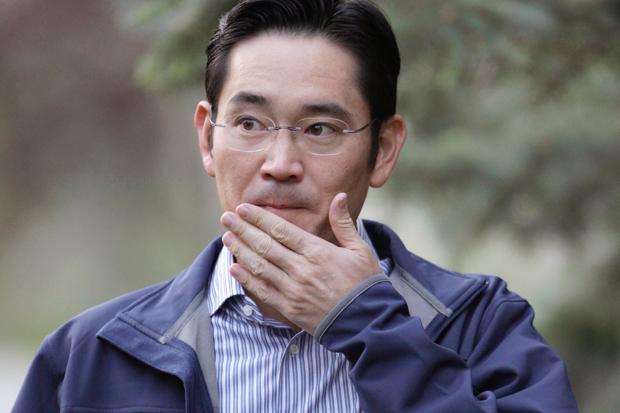
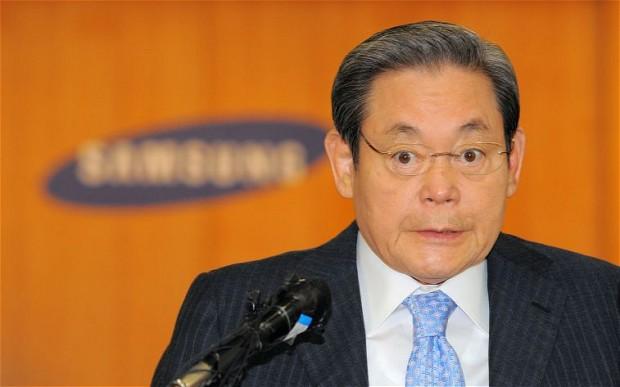
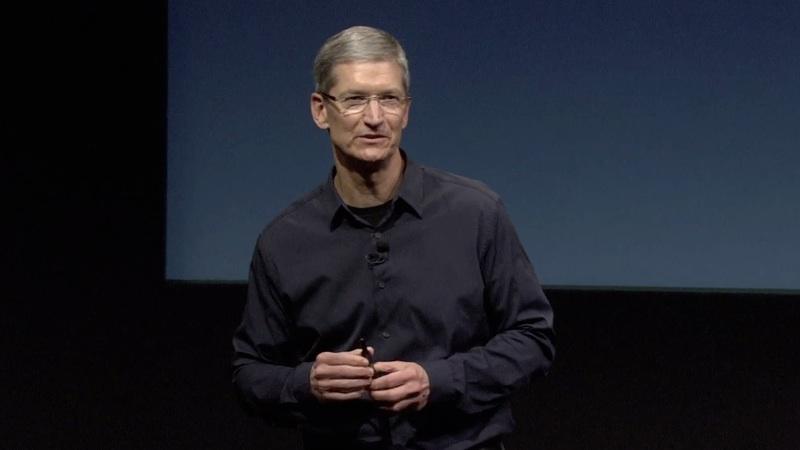
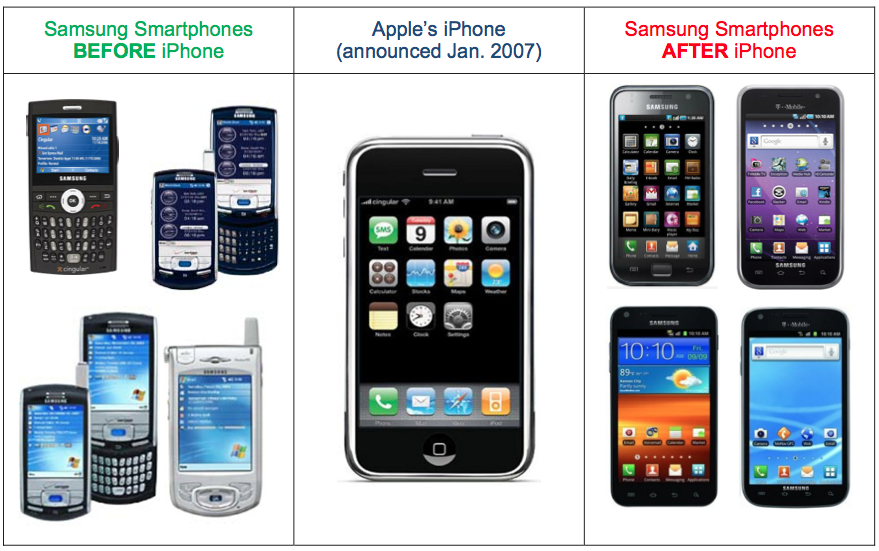
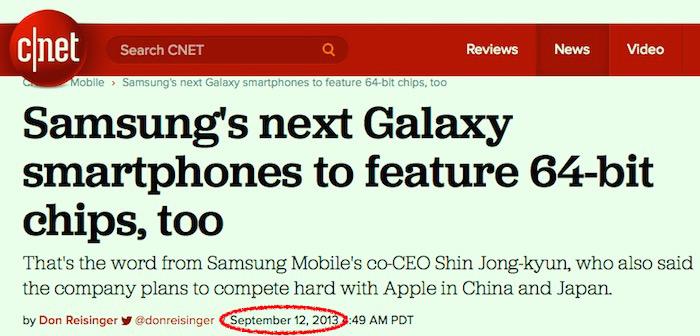







-m.jpg)





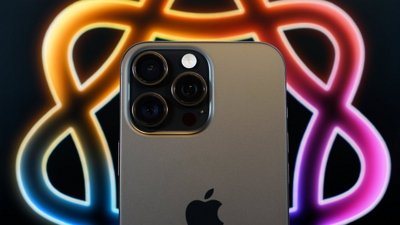
 Wesley Hilliard
Wesley Hilliard
 Amber Neely
Amber Neely
 William Gallagher
William Gallagher
 Malcolm Owen
Malcolm Owen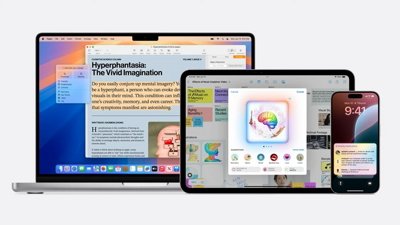
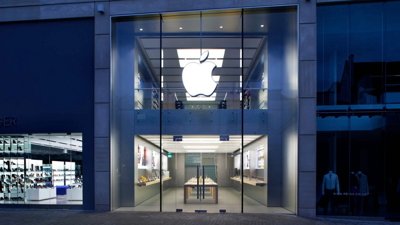

 Andrew O'Hara
Andrew O'Hara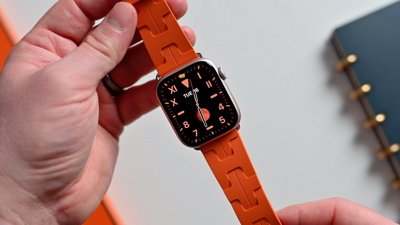
 Andrew Orr
Andrew Orr

-m.jpg)






83 Comments
Aw, c'mon how hard is it to run a bunch of photocopy machines? :) " Xiaomi will also give Samsung a strong competitor in closely copying Apple as a fast follower," then again Xiaomi's photocopy attendants seem even better!
The more I read about Samsung, the more I'm surprised how it operates outside of the law and continues to get preferential Korean government treatment. Two executive criminal pardons? And where's that USD$1 billion that is owed Apple?
So basically the son Lee Jae-yong has seen his father get away with so much stuff that it must seem routine or normal business for the son. Sounds like a monster in the making.
Come on now, can we just let it go. Samsung, Samsung, Samsung. They are not the big bad boogie man that little iOS users see in their nightmares. Move on, please.
So, if Apple continues to hammer Samsung, will South Korea blame them for economic troubles like Finland did? :D
All you need to do is read an article's tittle to know ithat DED wrote it. :)